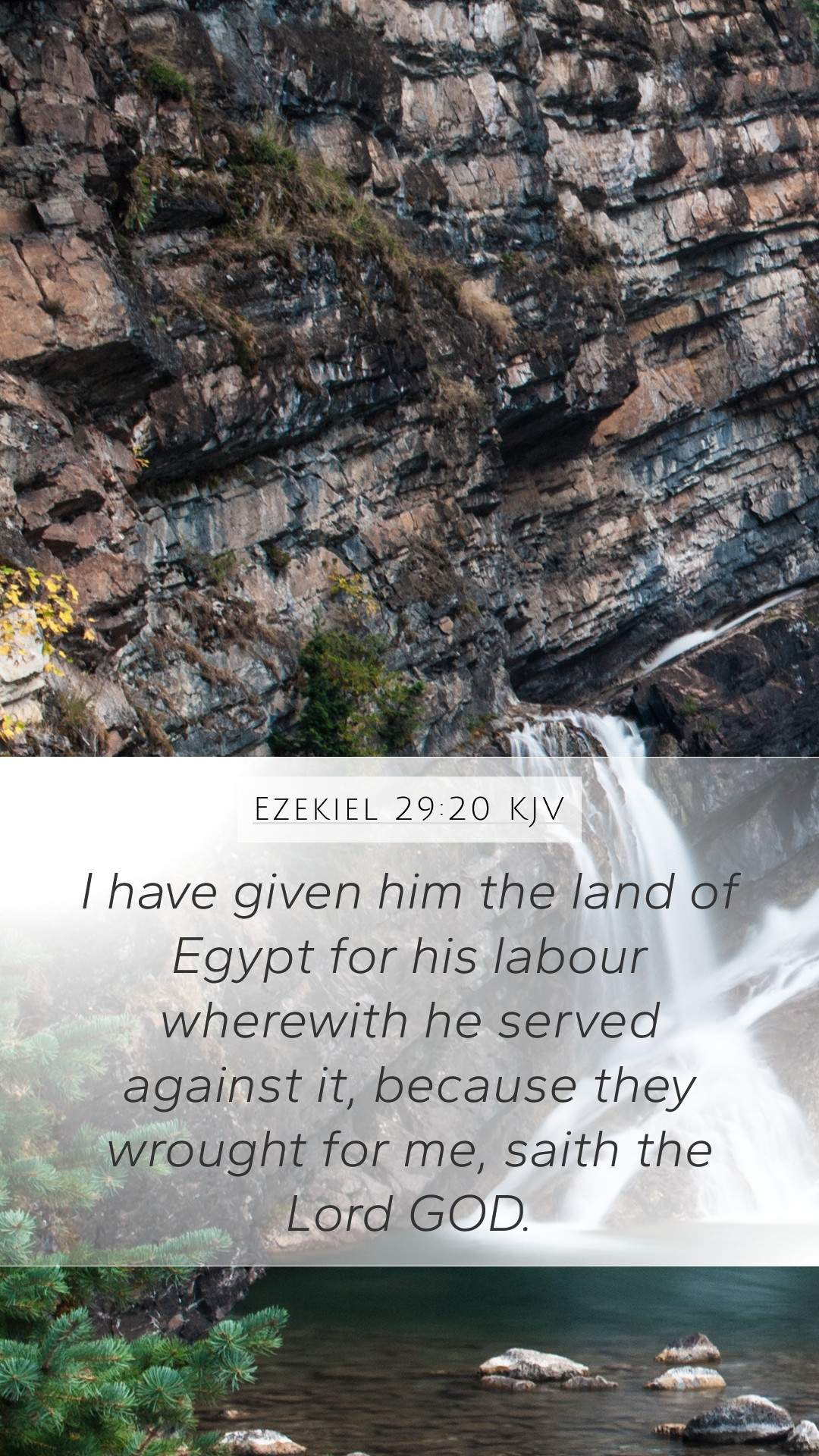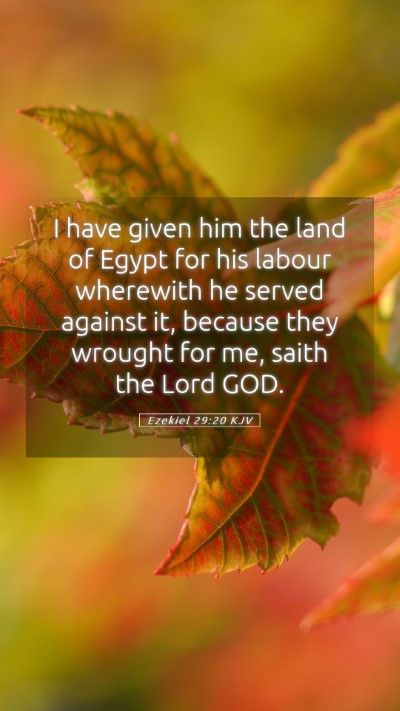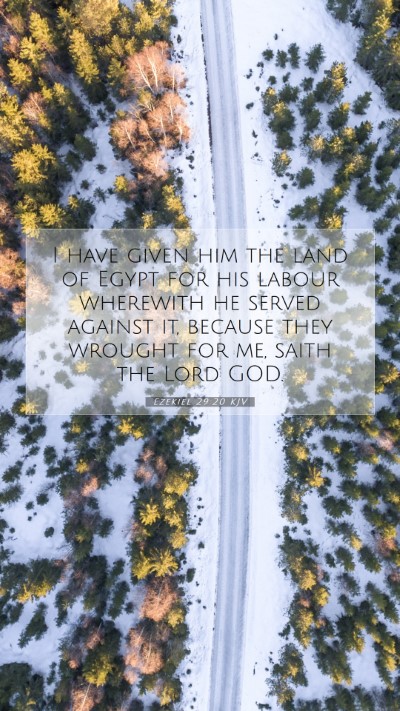Ezekiel 29:20 - Meaning and Interpretation
This comprehensive analysis delves into the verse Ezekiel 29:20, which states: "I have given him the land of Egypt for his labor, wherewith he served against it, because they wrought for me, saith the Lord God."
Context and Background
Ezekiel prophesies during a time of captivity for Israel, addressing various nations, including Egypt. This particular verse speaks to the fate of Egypt and the role of the nations in God's overarching plan. The significance of labor, service, and divine retribution comes to the fore in this passage.
Bible Verse Meanings
The meaning of Ezekiel 29:20 can be broken down into several key elements:
- Divine Justice: God's sovereignty over nations and their fates is highlighted, showing that even nations seen as powerful will ultimately serve His purposes.
- Labor and Reward: The verse emphasizes the idea that labor done, even for God’s adversaries, can result in recognition, reflecting God's justice system.
- Historical Fulfillment: The passage points towards the historical interactions between Israel and Egypt, indicating God's control over historical events.
Bible Verse Explanations from Public Domain Commentaries
Insights from notable public domain commentaries provide depth to our understanding:
Matthew Henry's Commentary
Henry notes that this verse illustrates God's control over the nations, asserting that through their actions, even those of unbelieving nations, ultimately serve His purpose. The reward to Egypt for its labor, despite its history with Israel, emphasizes God's overarching plan and justice.
Albert Barnes' Notes
Barnes interprets the phrase "I have given him the land of Egypt" as a reference to the Lord's dominion, indicating that God can dispose of nations as He wills. He highlights the idea that Egypt's service led them to this fate, portraying God's justice in recompensing them according to their deeds.
Adam Clarke's Commentary
Clarke elaborates on the implications of "wherewith he served against it," suggesting that the labor of nations against God's design ultimately leads to their own downfall or a skewed form of reward. He posits that this verse serves as a warning against nations that oppose God's plan, emphasizing the importance of aligning with divine will.
Spiritual and Practical Applications
Understanding Scripture often entails applying its teachings to daily life. The verse provides insights into:
- Understanding Difficult Bible Passages: This verse, while seemingly straightforward, encapsulates a complex relationship between faith, labor, and divine justice.
- In-Depth Bible Verse Analysis: Engaging with scriptural themes like God's sovereignty and the purpose of nations encourages deeper reflection on our own actions and beliefs.
- Bible Study Resources: This verse can be a focal point in Bible study groups to discuss the relationship between God's will and human actions.
Cross References
This verse relates to several other passages that enhance its understanding:
- Isaiah 19:1-25 - A prophesy concerning Egypt and its future.
- Jeremiah 46:1-28 - God's message regarding the impending judgment on Egypt.
- Revelation 16:12 - References to the plagues affecting nations.
Conclusion
Through the careful interpretations provided by renowned commentaries, we conclude that Ezekiel 29:20 serves as a profound reminder of God's sovereignty and the integral role of service, both righteous and otherwise, in fulfilling His eternal plan. Engaging with such texts invites believers to reflect on their own lives and the broader implications of divine justice in their daily walk.


